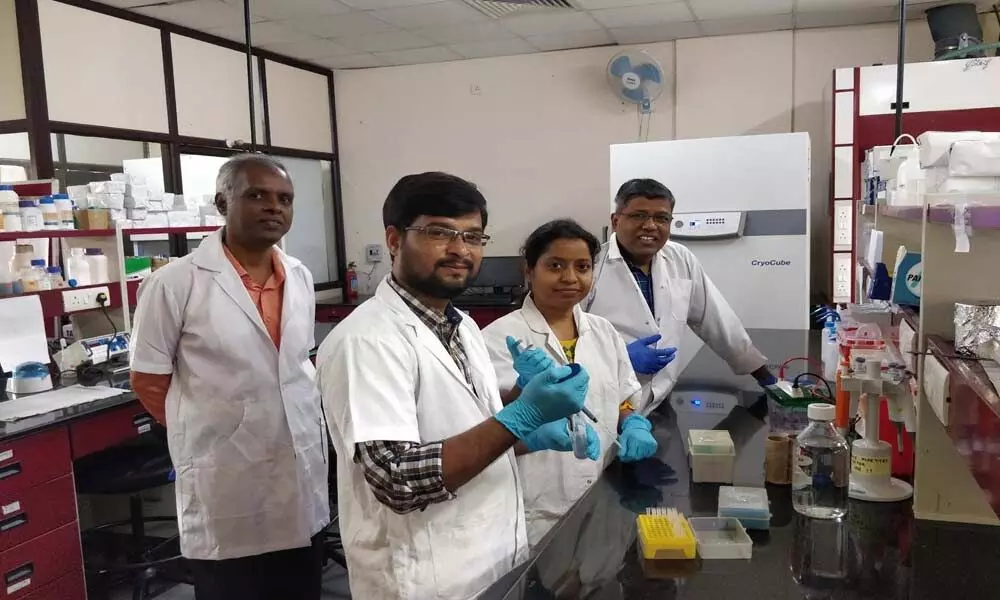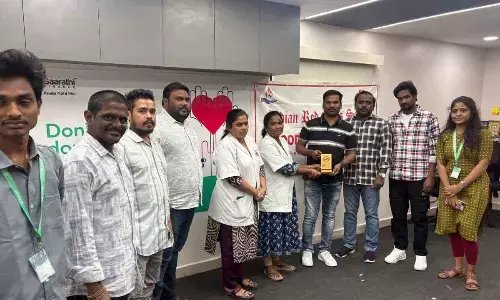UoH researchers identify likely cause in dengue patients

UoH researchers identify likely cause in dengue patients
Dr Musturi Venkataramana (Department of Biotechnology & Bioinformatics) and Prof Naresh Babu V Sepuri (Department of Biochemistry) School of Life Sciences, University of Hyderabad, carried out the study which has been reported recently in the ‘Journal of Virology’
Hyderabad: Dengue virus infections pose a significant threat to human health currently, as reported from nearly 140 countries. About 40 per cent of the world's population is at the risk of dengue virus infections. There is no specific drug or potential vaccine for these infections. Lack of a complete understanding of the pathogenesis is one of the hurdles for developing anti-virals for this virus infection.
Using in silico analysis, a group of researchers from the University of Hyderabad (UoH) led by Dr. M. Venkata Ramana and Prof. Naresh Babu Sepuri showed that the non-structural protein-3 (NS3) enters the host mitochondrial matrix and cleaves a very important matrix protein (GrpEL1) essential for major functions of the mitochondria. This is the first-ever report, for human and animal viruses, that an important viral protein (NS3) enters the mitochondrial matrix.
Importantly, these research groups observed a possible correlation between the reduced levels of GrpEL1 and the import of NS3 into the mitochondrial matrix in severe dengue infected clinical samples obtained from Dr. V.S.V. Prasad, The Lotus Children's Hospital, Lakdikapul, Hyderabad. This study suggests mitochondrial dysfunction might be one of the reasons for the decrease in the number of platelets that results in 'thrombocytopenia,' a condition manifested in dengue patients.
The study provided novel insights on the import of NS3 into host mitochondria. More importantly, by virtue of its interaction with the NS3 of dengue virus, the GrpEL1 could be a potential target to develop anti-dengue drugs that may reduce the severity of dengue.
Interestingly, Dr. Ramana and Prof. Naresh have identified that the SARS Covid-2 virus-encoded non-structural proteins also have mitochondrial target sequence and have the potential to interfere with mitochondrial functions. The identification of the first mitochondrial matrix protein being targeted by a human virus, by UoH researchers in dengue virus infection, may strengthen our fight against human viruses including Covid-19.

















